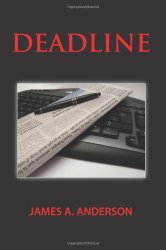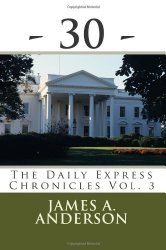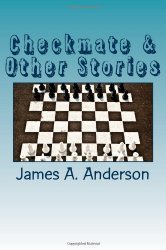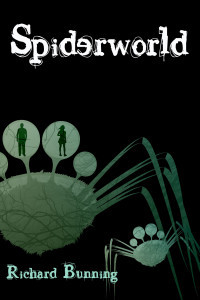Massimo Marino's Blog: The Ramblings and the Rumblings, page 9
October 10, 2015
4 Reasons to Visit the Roman Catacombs

This post was posted by TheHipmunk on Hipmunk’s Tailwind blog on September 30, 2015.
In ancient Rome, burial within the city walls was forbidden. The pagan culture of the second and third centuries preferred cremation, despite the objections of the Christian minority. As land for graveyards was scarce, the Christians of the day cultivated a sense of community away from the public eye by digging burial tunnels into the soft volcanic rock called tufo.
These ancient sites can now be found on the outskirts of the city, along major roadways and close to many Roman hotels. History buffs will find them a fascinating way to experience early Christian art, and to visit the resting places of numerous saints and martyrs.
St. Callixtus and St. Sebastian Catacombs
Both are located along Via Appia Antica and are reminders of religious persecution before Christianity was legalized. You can easily visit both sites in one day, then dine at Hostaria Antica Roma, a converted mausoleum, to complement the theme of your outing. After dinner, retreat to the Appia Park Hotel to relax on your room’s private balcony.
St. Agnes fuori le Mura Catacombs
This ancient site is located along Via Nomentana beneath the Basilica di St. Agnese, home to the mausoleum of Emperor Constantine’s daughter Costanza. A guided tour leads you down into the subterranean tunnels via staircase entrance inside the St. Agnese Church. The catacombs feature rows of burial niches, most of which were emptied by 15th century looters. The lavish Hotel Fenix is just down the road; not one of the cheapest hotels in Rome, but well worth the price.
Catacombe di Priscilla
Named for the noblewoman who donated her land, these catacombs with their secret entrance offer a wealth of ancient artwork below a Benedictine convent. Here you’ll see rare frescoes, like an ancient Madonna and Child. Afterward, adjourn to nearby Mezzo to sample Italian wines, then retire to your room at the American-themed Hotel Beverly Hills Rome.
Catacombs of St. Domitilla
Located along Via del Sette Chiese, this site offers a reprieve from the hot summer sun. Exploring the 15 kilometers of tunnels gives you plenty of time to cool down. The site is home to a second century fresco of the Last Supper, and is the only necropolis with an underground basilica. Once back above ground, you’ll welcome the wide open space of Parco della Caffarella to the northeast. An icy cocktail at the nearby La Mela Hotel provides the perfect nightcap.
These fascinating tunnels offer a rare glimpse into the past. Some were even completely forgotten by the 10th century, only to be unearthed again in the mid-15th century. On your trip to Rome, be sure to discover them for yourself.
The post 4 Reasons to Visit the Roman Catacombs appeared first on § A Scientist Envisioning Science Fiction.
October 9, 2015
How to Keep a Great Travel Journal

This post was posted by TheHipmunk on Hipmunk’s Tailwind blog on September 28, 2015.
In an age when much of human communication takes place in 140 characters or less, somehow the travel journal still persists. There are many wonderful reasons to catalogue a trip, from recording facts to sharing the experience with others, chronicling advice or travel tips from locals, quashing boredom in the airport or during solo meals, processing the wide array of emotions that can crop up during travel, and feeling a little less alone.
Ultimately, the best reason for keeping a journal lies with the traveler who writes it. Just keep these few tips in mind and you’ll have a travel treasure for years to come.
Consider the audience
Will other people read the journal, or is it for your eyes only? If the journal will be shared, will it be read by close friends and family or on a public blog? The answers may influence the style, tone, and content you choose to adopt. If the journal will be public, readers may be less interested to know what time you brushed your teeth each night. If it’s private, consider the details you’ll most want to remember when revisiting the journal decades from now.
Choose a medium
There is no wrong or right way to record a journey. Pick the medium that works best for you, whether that’s a pen and some notebook paper, a fancy leather-bound or homemade journal, or the “notes” feature on a smartphone. What matters is that you’re excited to write things down.
Include the basics
So much happens during vacation that it can be tough to know what or how much to include. A good place to start is recording the trip itinerary and/or plotting the route on a map tucked into the journal. Also chronicle names and descriptions of people you encounter along the way (be sure to jot down their contact info if you want to stay in touch!).
Personal observations and tips also make great fodder for journals. If you develop a knack for traveling with pets or camping in bad weather, record those lessons so you can share them with fellow travelers. Then focus on highlighting your favorite parts of the trip, whether that’s sunrise in London or perusing art in Athens. And always remember to date each entry.
Make it come alive
A journal doesn’t have to consist of a step-by-step, chronological recap of each day’s events. The pressure to record everything can get overwhelming (and boring) real fast. Instead, create a vivid diary of experiences by highlighting exceptional moments (say, standing in the center of the world or surfing in La Jolla), writing down funny dialogue, describing the experience from the perspective of all the senses(tastes, sounds, smells, textures), journaling about your emotions during the trip, and incorporating multimedia like drawings, receipts, theater or train tickets, postcards, brochures, interesting leaves, or the business cards of new acquaintances. These mementos will help bring memories alive when you revisit the journal down the road.
Keep up
Try to write things down on the day that they happen (or the next day at the very latest). Otherwise, it’s easy to forget things as you’re inundated with new experiences. Even if it’s not possible to write out a narrative entry every day, consider jotting down a few notes each night in order to keep track of events.
Tag team it
Invite travel companions to take turns keeping the journal and recording their own thoughts, reflections, and mementos. This can both infuse the journal with fresh perspectives and take some pressure off if it’s feeling daunting to write every day.
Look for themes
Near the end of a trip, consider pouring back through the journal and noting any themes that arose. Did you learn a big lesson or change in some way? Did the trip meet or defy your expectations? These reflections can spark concluding entries as well as personal insights.
Above all, remember to keep it low pressure. The fastest way to kill journaling motivation is treating it like homework. Instead, write when you want to, write however much (or little) you want, and don’t worry about spelling, grammar, and the like. Do it your way, and it’ll be much easier (and more fun) to chronicle your adventures.
The post How to Keep a Great Travel Journal appeared first on § A Scientist Envisioning Science Fiction.
A Stone’s Throw From Stonehenge Lies A Massive New Mystery

This post was posted by TheHipmunk on Hipmunk’s Tailwind blog on October 6, 2015.
Located in Wittshire, England, Stonehenge is one of the world’s most iconic man-made landmarks. Tourists flock to the raised stones to ponder their origins and meaning. Are these the marks of an alien burial site? Were ancient sacrificial rituals conducted here? How were these stones raised before the advent of modern technology? Stonehenge baffles tourists (and historians) to this day as it sits isolated in the middle of the English countryside.
Recently, a group of archaeologists from the Stonehenge Hidden Landscapes Project uncovered the extensive remains of a 90-stone structure less than two miles from Stonehenge. Using remote sensing technologies, the archaeologists were able to detect the presence of the massive stone monument, which is currently buried under a bank of grass. Though the archaeologists aren’t entirely sure when the monument was built, they are able to place its construction as contemporary to Stonehenge itself, some time between 2,000 and 3,000 BC.
This new discovery means Stonehenge is not isolated and may in fact be relatively small in comparison to its newfound neighbor. Scientists and archaeologists alike are scrambling to figure out the significance of the new monument and where it figures into the history of the area.
Luckily for them, the new monument is surprisingly well-preserved, and excavation of the stones could lead to specimens more easily researchable than Stonehenge. If full excavation occurs, the monument would form a half moon that dwarfs its sister site. Preemptive hypotheses suggest the new stones might’ve been used for ancient calendar purposes, as a sacred space for religious acts, or as the wall of an arena.
In a statement released to the press by the Stonehenge Hidden Landscapes Project, Paul Garwood, Senior Lecturer in Archaeology at the University of Birmingham, reflected on the project’s game-changing discovery, “The extraordinary scale, detail and novelty of the evidence produced by the Stonehenge Hidden Landscapes Project is changing fundamentally our understanding of Stonehenge and the world around it. Everything written previously about the Stonehenge landscape and the ancient monuments within it will need to be re-written.”
Regardless of what scientists uncover, this story will be an important one to watch unfold. And in the near future, the discovery might also be a can’t-miss addition to the English travel itinerary.
The post A Stone’s Throw From Stonehenge Lies A Massive New Mystery appeared first on § A Scientist Envisioning Science Fiction.
September 25, 2015
Daimones “On the Gods and the World”
Daimones is not your usual post-apocalyptic story. It has been a disturbing read for many readers, but for a vast larger group of discerning readers it has been quite a discovery.
The trilogy has sold in excess of 10,000 copies to date. Maybe you’ll be one more after this post?
Happy reading
Daimones (The Daimones Trilogy Book 1)

ON THE GODS AND THE WORLD
“These things never happened, but they are always.”
—Sallustius
Deorum naturae neque factae sunt; quae enim semper sunt, numquam fiunt: semper vero sunt.
PROLOGUE
WARNINGS
TIME REPORTED LARGE numbers of animals deaths, from thousands of birds found lifeless in two U.S. states in the deep South, to the one hundred thousand dead fish in arid locations such Arkansas.
Strange deaths had caused alarm among naturalists and environ- mentalists in all nations. Birds fell dead from the sky. Fish washed up on shores and rivers across the whole planet. People, however, had other things to care and worry about. Mainstream media focused on economic crises, financial scandals, sovereign states at risk of defaulting in the Euro zone, the Arab Spring, and the global war on terror.
The link was there. We were the sapient species on earth, clever enough to connect the dots no matter how far apart they were. We should have done our job to connect them. But we were too busy, too preoccupied with other facts to ask ourselves: What the hell is happening?
Nature’s red flags went unnoticed and animals—scores of them— kept dying. We kept living our own lives…
The post Daimones “On the Gods and the World” appeared first on § A Scientist Envisioning Science Fiction.
September 8, 2015
In Memory of James A. Anderson (1948-2015)
Do not stand at my grave and weep
I am not there; I do not sleep.
I am a thousand winds that blow,
I am the diamond glints on snow,
I am the sun on ripened grain,
I am the gentle autumn rain.
When you awaken in the morning’s hush
I am the swift uplifting rush
Of quiet birds in circled flight.
I am the soft stars that shine at night.
Do not stand at my grave and cry,
I am not there; I did not die.
The original poem was written in 1932 by Mary Elizabeth Frye (1905-2004) from Baltimore, MD. There are in existence many slightly different versions of the poem. This extremely famous poem has been read at countless funerals and public occasions. The author composed this poem in a moment of inspiration, and scribbled it on a paper bag. She wrote it to comfort a family friend who had just lost her mother and was unable to even visit her grave. This is the only surviving poem of Mary Elizabeth Frye and quite possibly her only poem.
Source: http://www.familyfriendpoems.com/poem/do-not-stand-by-my-grave-and-weep#ixzz3l83C1Xj8
Family Friend Poems
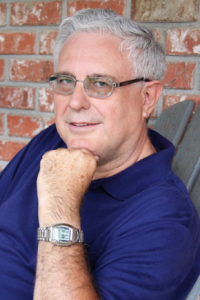 A few days ago, our friend, supporter, mentor, fellow author, and more, left us. He covered many roles for many independent writers at their debut, and he has left a void that will be filled only by the memory of his words, suggestions, and tips.
A few days ago, our friend, supporter, mentor, fellow author, and more, left us. He covered many roles for many independent writers at their debut, and he has left a void that will be filled only by the memory of his words, suggestions, and tips.
James A. Anderson was born in 1948 in Glasgow, Scotland. His early education was in Scotland and England before his family emigrated to Canada in 1957. He completed his high school and university education in Canada. He was a graduate of McMaster University with an Honours BA in History in 1972.
He became a journalist in Canada and has worked 35 years in daily and weekly newspapers before retiring in 2005. He published his first novel DEADLINE in September 2010.
James lived in London, Ontario, Canada. He leaves two grown children, a son and a daughter, and four grandchildren.
I’ve never met James in person, but he became a friend online. He has been the first to read the manuscript—in its unpolished draft version—of my first novel, the first helpful critic with suggestions and pointing at areas that needed more work. He arranged my first experience with an editor, and has been the very first reviewer of my novel, once published: 68 people found his words useful.
We will miss you, James. We can have our eyes full of tears for a friend we only met online, with whom we shared the same passion, the same aspirations, and burned with the same inner fever. It’s what makes us united, despite the distance, despite different background and experience. It’s what makes us human, it’s what makes us brothers and sisters.
Your friend.
PS
James’s work can be found on Amazon.
I invite all friends and fellow authors who have met/known James to share with us a few words in the comments, and I’ll add them to this same post.
Condolences
Linda Fulton – I am in shock to hear that James Anderson has passed on. He was encouraging and supportive of me as a new author. He edited my first book. I never met him in person, but I knew he was a kind person with a kind heart. He leaves a big hole with all the writers who knew him and I’m sure that empty space is felt by all his family and friends. We have lost a talented author and a great editor and an all around good person. I will miss his support and level headed kindness. I’ll be praying for his family and friends. Rest In Peace, James.
Shirley Hicks – He will be missed my many. He was one of the good guys. RIP, my friend.
Rebecca Stroud – To me, Jim Anderson was much more than an author, editor, book reviewer…he was my friend. Although we’d never met personally, we’d been in constant touch over the years. I shared his angst over his divorce and his feelings about his new relationship; I traveled with him (virtually) on his solo trip across the northern US on his way to Vancouver and back home again to London, Ontario; and he listened to my incessant whining about whatever I happened to be griping about…or excited about. We discussed everything from politics to dogs to editing to the weather…I will miss him terribly. Such a good, good man…such a loss.
Lalo LaFleur – Very sorry to hear this. He was supportive and encouraging to other authors and a very fine person. Condolences to his family.
Fran Yoakum Veal – So sorry to hear about the passing of James. My prayers are with your family. He was such a kind person.
Heather Payne – So sorry to hear about Uncle Jim. He will be sadly missed. R.I.P. Uncle Jim.
Ch’kara SilverWolf – So sad to hear about James he was a gentle man. Blessed Be!
Thomas Watson – I had noticed his absence and wondered. Truly sorry to hear that he is gone.
Sheena Mackinnon – What a shock. I had noticed that Jim’s frequent comments were missing from facebook, and had intended to contact him. He very kindly showed me his city of London, and last June, I was able to give him a short tour of Nova Scotia, which he enjoyed. Yes, a gentleman, and pleasant company. I hope his son and daughter see this note, as they, and his grandchildren, were very important in his life. I will read again my copies of his novels, and remember him fondly.
Mel Comley – RIP James Anderson a true gentleman and fellow author who will be sorely missed.
Kathy Delaney – This is so awful! I am so sorry to hear this news. Jim was such a nice individual, interesting, and such a talented writer. He will be so missed! My prayers and thoughts are with his family.
Mira Brown – This is devastating news. Jim was one of the nicest and most interesting people that I had the privilege to meet on Amazon and here.
A brilliant writer. My deepest condolences to the family. Their loss is immeasurable. My thoughts are with you all.
Tom Jackson King – I knew James as a fellow journalist and as the author of several thriller novels based on current events. He was kind, generous, sharing with me and others, a fine man who is missed by me and many others. Jim, may you live on in your novels and in the memories of the many you touched.
Lisa Williamson – I too was one of James’ online friends. He mentored me and was kind enough to review my first short story as an Indie author. I wrote this in his honor:
“Goodbye”
A friend
A mentor
A Master storyteller
So much to so many
Learned you passed
Suddenly you were gone
And you left a hole behind
In the hearts of all you touched
You taught us courage
Taught us how to use words
Kindly shepparded the new
ill we found our feet
Now we sit stunned
So close you were
Yet now so far
You will be missed
Jean Kilczer – Dear James Anderson, you were a good person, a friend to new writers, and a fine writer. Yours was a life well lived. “I warmed my hands by the fire of life, it dies, and I am ready to depart.” Rest in Peace, my friend.
Rhonda Drake – You were a good friend and fellow Author James, and will be missed in the world you’ve left behind. Your writers’ community will miss you deeply, as well as all of your fans.
Holly Barbo – He was a very nice man and a supportive friend. I hoped to meet him..I guess I will put that on my list and hope when the time comes I will go to heaven and see him there. what a visit we will have! You left us too soon, James.
Bryden Lloyd – Mr. Anderson… James… Dear, dear man.
We didn’t converse regularly, often only a passing “how are you doing?”, or similar.
When we did discuss writing, it was always about how well everyone was doing.
You see, that was just it… you were always interested in others and how they were doing; What more we could all do to help.
It was inspiring, but it is so sad to admit that it was never often enough.
You will be greatly missed by a great many people. By so many a great deal more deeply than I. I am proud to have known you, even just for a little while.
Sleep well, my friend, until we meet again.
James A. Anderson novels and short stories
The post In Memory of James A. Anderson (1948-2015) appeared first on § A Scientist Envisioning Science Fiction.
August 19, 2015
Form Versus Function
It is always the unreadable that occurs. —Oscar Wilde, The Decay of Lying
People toss around the word unreadable a lot—invariably about something they have, by definition, read, at least in part. By “people,” I specifically mean people who read for a living, or part of it. It’s one of those conversation enders, a condemnation so sweeping and damning that one is powerless to argue.
But beyond this, unreadable can mean many things. An unreadable book may be pretentious, obscure, indecipherable, and/or not worth the time it takes to decode. Occasionally, the unreadable text takes vague inspiration from modernism, postmodernism, and academic writing. Footnotes are not uncommon. This form—aspirational unreadability—is popular among the very young and the mentally ill.
There is writing so incompetent that it is unreadable: clunky sentences, random tense shifts, leaden dialog. This is particularly irritating in the case of plot-driven narrative, with a special emphasis on mysteries. Terrible translations also belong in this category, although they are sort of a category of their own.
Then there is the literally unreadable, otherwise known as the illegible. Granted, this is not as common in a post–typewriter ribbon age. But weird fonts, the use of symbols, and computer viruses can all contribute to unreadability. Handwritten manuscripts are often unreadable, too—although it should be said that in my experience, these usually fall into one of the above categories, too.
To be unreadable means that the book in question is not merely bad but offensively bad, an imposition on one’s valuable time. It is not pleasurable or instructive in any way. An unreadable book serves none of the functions of a book, whatever that may mean to an individual. The epithet is high-handed and subjective. Anyone who uses it is redefining literacy! At least for a moment.
Originally from Sadie Stein, contributing editor of The Paris Review and the Daily’s correspondent.
The post Form Versus Function appeared first on § A Scientist Envisioning Science Fiction.
July 16, 2015
The Self-Published Writer’s Hubris
 I understand… Sometimes we should just raise shoulders, and move on. But sometimes it is just a tough one.
I understand… Sometimes we should just raise shoulders, and move on. But sometimes it is just a tough one.
One aspect of self-publishing that really ruffles me up—and it does so because it hurts all independent authors—is the oddball writer who has quite a peculiar vision of what entails publishing, being read, and the care and sweat needed to achieve that.
The tirade is about understanding self-publishing as a Do-It-Yourself business. Wrong!
The reasons and motivations behind that reasoning(?) can be varied, but the result is always the same:
“I don’t need anyone, I’m good as I am, nobody will ever make me any better than I’m already.”
The self-published writer’s hubris.
I just had a sort of querelle with someone who, although he claims that it is only a personal thing and he doesn’t suggest others to do the same, invariably writes down a comment on any and every thread online I’ve seen that has to do with editors, proofreaders, and the work they do with writers.
He goes on describing how he doesn’t need nor want the help of editors and proofreaders because one can self-study to do it properly and he’s there to prove it. The absurdity goes even further with comments (citing) like: “I don’t want them” [i.e, readers] “thinking my writing is good because it has been improved by someone else. I strive to produce my best output. A professional editor, proofreader or beta reader cannot improve my best, they can only change it or add to it, or even make the writing better. Thereafter it ceases to be my best, but theirs.”
There are many flaws with that position, clearly affected by the self-publishing hubris:
1) The assumption that your writing is so good that you don’t want readers think that it “… is good because it has been improved by someone else.”
All right, dude. Calm down. You’re in cloud nine and with the highest levels of hubris’ fever.
2) “A professional editor, proofreader or beta reader cannot improve my best.”
Right, your work is the next Greatest American Novel and the level of your writing is already up there, at the writing’s zenith.
3) “they can only change it or add to it”
Wrong, an editor (depending on which level of editing) will fix the obvious typo, or grammar issue, but will not “change” or “add” anything. He’s not there to change your voice, she will point at so-so areas to make *you* the writer think harder: did you really wanted to say *this* this *way* ?
Ah, yes. You don’t have so-so areas.
4) “A professional editor, […] cannot […] make the writing better.”
Yes, we got it, you’re in Mount Olympus with the greatest writers of all times.
5) “Thereafter it ceases to be my best, but theirs.”
Dude, you never worked with a real editor, and you really have a ‘grandeur’ syndrome.
Thanks for reaching the end of this post, and if you are an independent writer, when you’ve spent countless hours on self-editing and self-proofreading, acted upon the feedback from your beta readers, let that 4th version of your manuscript rest for weeks until you almost forgot about it, and then read it aloud once more, do your fellow writers and your readers a huge favor, HIRE AN EDITOR.
Added on Sunday 9th of August: This is another REAL example of self-delusional publishing, I’m sure you’ll recognize the sign of hubris this writer shows:
“Your, not going to believe, what happened to me?
I have been trying, to get, this book published and like a different person, was black listed, before I even got a chance, to prove myself. I have been ever since trying to improve my book and thereby, my vision got lost and also, I tried to bring in old English, to make the ways, that I wrote, more interesting and more educated, like in the older parts, of our livingnessess, something similar, to this language and the publisher, would not even, edit my book.
I have been, struggling since and now, I had a friend read the prerequisites, in front of me and I realized, that by mistake, I wrote a book, that maybe, Einstein could read, so I am dumbing it down and I am so lost and so not knowing, where to go, with these problems.
Please, realize that this is the third edition, of this same book. The first time, the book was perfect, the second time, I was insecure already and the third, I put too much intelligence and too much knowledge, of the quantum particles of energy and how it effects us, instead of just, separating each subject, into smaller segments and an easier constitution, so that these smaller parcels, of informations, would be easier to grasp and to be, understood and absorbed, in a better fashion.”
Let’s analyze the above (forget the many grammar mistakes, the horrible punctuation, and the style—for a moment, if you can, that is). If you read the first lines, the hubris is obvious, the writer doesn’t take the time to think that maybe the fault it’s all his:
“Your, not going to believe, what happened to me? I have been trying, to get, this book published and like a different person, was black listed, before I even got a chance, to prove myself.”
Apart from the grammar and punctuation, so it’s because the others have been mean to the writer in an unbelievable way. Singled out, even.
Again, the writer insists in putting the blame on others: “I tried to bring in old English, to make the ways, that I wrote, more interesting and more educated, like in the older parts, of our livingnessess, something similar, to this language and the publisher, would not even, edit my book.”
I see lots of hubris between the lines in the above piece: “I wrote a book, that maybe, Einstein could read, so I am dumbing it down.” – “The first time, the book was perfect” – “I put too much intelligence and too much knowledge, of the quantum particles of energy and how it effects us”
Besides, I’m a particle physicist and the last sentence alone makes me cringe; I can’t but see another self-delusional, full of hubris writer.
It is fine for a writer to decide that self-editing and self-proofreading is all s/he will do before publishing—there might be serious reasons to limit oneself that way. It is self-delusional to think that this is how s/he has achieved the best possible results for the story. And THAT is a disservice to readers who deserve much more than a self-edited and self-proofread book, but—again—there might be serious reasons behind the decision to limit one’s potential.
Making anything well involves a commitment to the work. And that requires courage: you have to trust yourself to the point of seeking the opinion of beta readers qualified to judge, or a trusted peer-group, and then your companion, the editor. Other eyes can see what you’re too close to your work to see, give perspective, open up possibilities.
It helps to remember that the goal is not to write a masterpiece or a best-seller. The goal is to be able to look at your story and say, “Yes. That’s as good as I can make it.” It is not achieved just by yourself and your own judgement.
“Writing and editing aren’t as similar as you’d think, the skills are very different. Besides, you should never self-edit*. […]. It’s two different personalities and most often needs two different people. Get help, professional help. It’s your career and your dreams at stake, nothing less than perfect will do.” — from 4 Assumptions that Help Authors Fail
If you’re a reader, appreciate what good there is, but don’t be shy if what you read falls short, say the writer: Dude, get an editor. Your story deserves it much more than you think.
* if you read the referred article, the “you should never self-edit” refers to believing that with self-editing we—as authors—can do without editors.
Massimo Marino is a scientist envisioning science fiction. He spent years at CERN and The Lawrence Berkeley Lab followed by lead positions with Apple, Inc. and the World Economic Forum. He is also co-founder of “Squares on Blue”, a Big Data Analytics service company, and of BookGarage, a publishing service brokerage company.
Massimo currently lives in France and crosses the border with Switzerland multiple times daily, although he is no smuggler. #SFWApro
As a scientist writing science fiction, he went from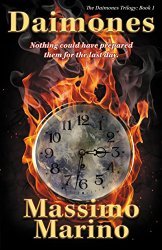 smashing particles at accelerators at SLAC and CERN to smashing words on a computer screen. He is is now an author with Booktrope Publishing, LCC, and Active Member of SFWA – Science Fiction & Fantasy Writers of America.
smashing particles at accelerators at SLAC and CERN to smashing words on a computer screen. He is is now an author with Booktrope Publishing, LCC, and Active Member of SFWA – Science Fiction & Fantasy Writers of America.
He’s the author of multi-awarded Daimones Trilogy. The 1st volume, Daimones (The Daimones Trilogy Book 1) , published by Booktrope is available since August 2015.
, published by Booktrope is available since August 2015. 
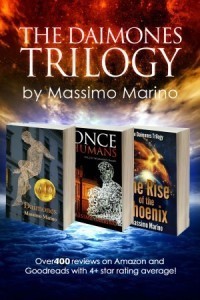 His novels have received the Seal of Excellency from both AwesomeIndies.net and IndiePENdents.org
His novels have received the Seal of Excellency from both AwesomeIndies.net and IndiePENdents.org
• 2012 PRG Reviewer’s Choice Award Winner in Science Fiction
• 2013 Hall of Fame – Best in Science Fiction, Quality Reads UK Book Club
• 2013 PRG Reviewer’s Choice Award Winner in Science Fiction Series
• 2014 Finalist – Science Fiction – Indie Excellence Awards L.A.
• 2014 Award Winner – Science Fiction Honorable Mention – Readers’ Favorite Annual Awards
His novels are available from Amazon, Barnes & Noble (Nook), iTunes Apple Store, and many other retailers around the world.
Join his mailing list for new releases, or follow him on Facebook, Google+, and Twitter.
The post The Self-Published Writer’s Hubris appeared first on § A Scientist Envisioning Science Fiction.
July 10, 2015
“Write Every Day” – Simone Pond
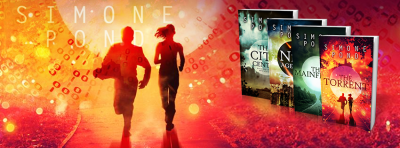 Award-winning author of young adult dystopian fiction.
Award-winning author of young adult dystopian fiction.
Simone Pond is an award-winning author of dystopian fiction. Her current series includes The City Center , The New Agenda
, The New Agenda , The Mainframe
, The Mainframe , and The Torrent
, and The Torrent . She also has a short story series called Voices of the Apocalypse
. She also has a short story series called Voices of the Apocalypse .
.
She grew up in Kensington, Maryland—a small town just outside of Washington D.C. As a young girl, she loved writing in her journal and making up stories, but after reading S.E. Hinton’s The Outsiders, everything changed. Amazed that a woman could write so convincingly from a teenage boy’s perspective, Pond became determined to become a writer as well.
Pond currently lives in Los Angeles with her husband and their Boston Terrier.
What keeps you motivated to keep writing?
For me, writing every day keeps the momentum going. When I take a few days off, I start lagging. That quickly turns into utter laziness, which is usually backed up by an irrational fear that I’ll never write again.
What helps keep my writing going is making a daily appointment in my calendar and sticking to it. Also, I meet with writer friends at least once a week to catch up, share ideas and write. It helps to be around other writers. It’s a lonely gig.
When I became serious about publishing, the first thing I did was make a timeline. I started with an ideal launch date and worked back from there, leaving plenty of time to create. I do this for every project to make me accountable. During the process, I’ll check to see if I’m on schedule and what I need to do to get back on track. It’s not just about writing the pages, there’s a lot of production involved, marketing and advertising. All of these things need to happen simultaneously. It’s a lot like juggling. But once you get the formula down, it’s like second nature.
Before I start page one, I write an outline. I cannot work without one. It’d be like trying to get somewhere without directions. The outline is always the toughest part of the process for me, but it’s worth it. I usually know if the story is going to work right away, rather than waste months blindly working on something that just doesn’t come together (I have many half-finished things from over the years).
Then I sit down and write, write, and write. It doesn’t matter if the first draft is horrible. Nobody is going to read it. What’s important is finishing something. The editing process is where the real magic happens.
While I’m writing I like to have hot tea, my laptop and music playing. I usually write in my living room, but when I get stuck I go to a local coffee shop to get re-inspired.
The most important advice I’ve ever received is to keep writing. I like to add: it saves lives.
Some of my favorite books on writing:
Bird by Bird by Anne Lamott
by Anne Lamott
Wired for Story by Lisa Cron
by Lisa Cron
The Writers Journey by Christopher Vogler
by Christopher Vogler
On Writing by Stephen King
by Stephen King
Check out the New Agenda book series and the Voices of the Apocalypse short stories collection at her website and follow her blog at Simone Says…
Be sure to join the mailing list for updates on new book releases..
To reach Simone on various social networks:
Massimo Marino is a scientist envisioning science fiction. He spent years at CERN and The Lawrence Berkeley Lab followed by lead positions with Apple, Inc. and the World Economic Forum. He is also co-founder of “Squares on Blue”, a Big Data Analytics service company.
Massimo currently lives in France and crosses the border with Switzerland multiple times daily, although he is no smuggler.
As a scientist writing science fiction, he went from smashing particles at accelerators at SLAC and CERN to smashing words on a computer screen. Massimo is a published author with Booktrope Publishing, LCC.
He’s the author of multi-awarded Daimones Trilogy.
His novels have received the Seal of Excellency from both AwesomeIndies.net and IndiePENdents.org
• 2012 PRG Reviewer’s Choice Award Winner in Science Fiction
• 2013 Hall of Fame – Best in Science Fiction, Quality Reads UK Book Club
• 2013 PRG Reviewer’s Choice Award Winner in Science Fiction Series
• 2014 Finalist – Science Fiction – Indie Excellence Awards L.A.
• 2014 Award Winner – Science Fiction Honorable Mention – Readers’ Favorite Annual Awards
His novels are available from Amazon, Barnes & Noble (Nook), iTunes Apple Store, and many other retailers around the world.
Join his mailing list for new releases, or follow him on Facebook, Google+, and Twitter.
The post “Write Every Day” – Simone Pond appeared first on § Author Massimo Marino.
June 29, 2015
Spiderworld – by Richard Bunning
AIA Publishing has just released its fifth book, and in line with previous fiction titles, the book has a unique voice and a metaphysical bent.
Spiderworld by Richard Bunning turns the tables on humans and spiders, and makes you think about humankind’s relationship with animals and with each other.
Not even the time-lord, Orlando Oversight, knows everything. But speculation can turn into a real future, and the Lush Star system, where spider-like beings treat humans as we do animals, isn’t such a distant dream away.
Do Jack Baker, the self-styled ‘Spartacus’, and his followers have a future as more than meat and slaves? Will Athalie have the life she hopes for with her hero? And will the ‘spider’ Boklung hold his business together while funding and organising the Arcraft’s voyage across the Milky Way?
Spiderworld is another of Richard Bunning’s quirky, speculative, science fictions.
Is it any good?
Of course it is. It’s published by AIA Publishing, a selective publisher with high standards in quality control. It’s also Awesome Indies Approved and has been nominated for an Awesome Indies Seal of Excellence in fiction.
Will I like it?
Here’s what the Awesome Indies review says:
This is a unique read in so many ways, and I loved it. Eight-limbed “spiders” rule the Multiverse. Humans (yeng) are an enslaved species, and also provide delicious meat to the Aranians. This was a book that pulled me into its pages. If you love sci-fi, alien worlds, even a bit of romance, then you’re bound to love this book.
Where can I buy it?
Who is Richard?
Richard is a citizen of the United Kingdom and New Zealand, but currently resides in Switzerland. He has seven substantive books published, plus one gift-market book written with few words and many short stories appearing in a number of anthologies. His novels are all speculative science fiction while his short pieces cover many genres. He’s also written ‘modern’ English language versions of French neoclassical plays that spouted from some quite different region of his author personality.
Details on all Richard’s writing, including free stories and ‘bloggins’, plus his reviews of many other writers’ works, can be found at:- http://richardbunningbooksandreviews.com
The post Spiderworld – by Richard Bunning appeared first on § Author Massimo Marino.
June 25, 2015
Cover Reveal – “Daimones” – Booktrope Publishing edition
If you were subscribed to my newletter, you would already know that I’ve signed with Booktrope Publishing. The whole Daimones trilogy will receive new covers, new editing and proofreading, some rewrite and some culling, all while waiting for me to finish my fourth novel, “The Law,” a YA Urban SF.
If not, now you know.
Daimones, Book 1, will be available on stores and bookstores starting from August the 1st.
It is also now available at NetGalley, the connection point for book publishers, reviewers, media, librarians, booksellers, bloggers, journalists, and educators producing professional reviews for major publishing houses around the world.

About the book: Nothing could have prepared them for the last day. Explore the future of humanity in Massimo Marino’s sci-fi debut, Daimones, an apocalyptic tale that feels like it could happen tomorrow. You may never sleep through a windstorm again.
Death swept away the lives of billions, but spared Dan Amenta and his family, leading them to an uncertain future. When merely surviving isn’t enough and the hunt for answers begins, memories from the past and troubling encounters lead Dan to the truth about the extermination of the human race. Distressing revelations give new meaning to their very existence.
Early humans shaped the future and seeded a plan millions of years in the making. Now survivors must choose: Endure a future with no past or fade away into a past with no future?
Does this mean I’m no more an independent author? I think the border is becoming fuzzier and fuzzier, the perceived war between traditional published authors, independent authors, hybrid, and more labels than you can count on your hand, will disappear.In the publishing universe of tomorrow there will be authors and their readers, all supported by publishing service professionals who help storytellers achieve the highest standards with their stories, and provide more readers with more great stories.
The post Cover Reveal – “Daimones” – Booktrope Publishing edition appeared first on § Author Massimo Marino.

